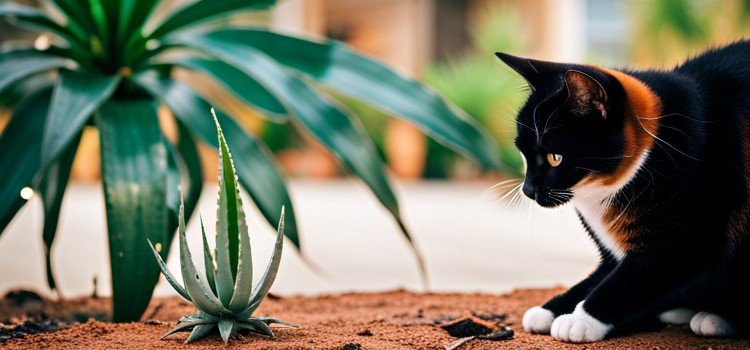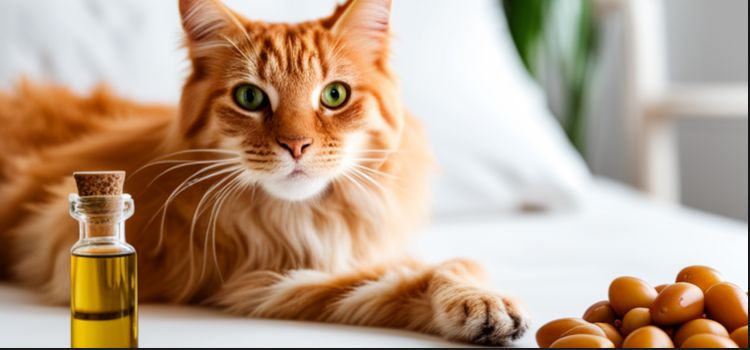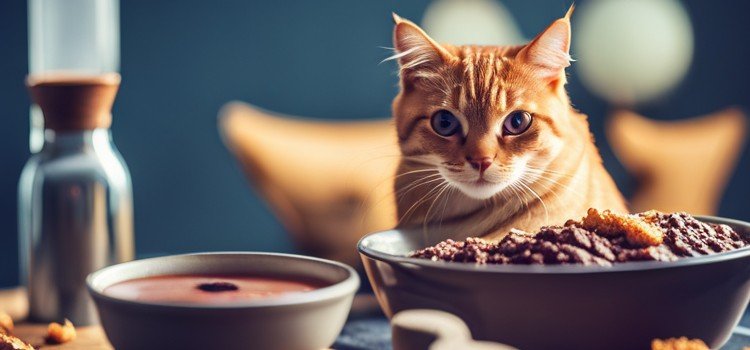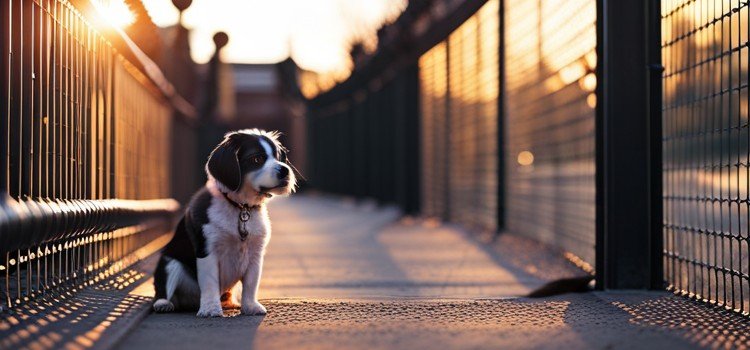As an Amazon Associate committed to the mission of improving the lives of our readers, Live-Clear.com receives a small commission from eligible purchases made through our affiliate links. This revenue enables us to keep producing insightful articles and other material.
Bougainvillea, with its vibrant and eye-catching blooms, is a popular ornamental plant in many gardens and homes. However, if you’re a cat owner, you may wonder, “Is bougainvillea toxic to cats?” Your cat’s safety is essential, and in this in-depth guide, we’ll go over the possible risks Bougainvillea may pose to your cat’s health.
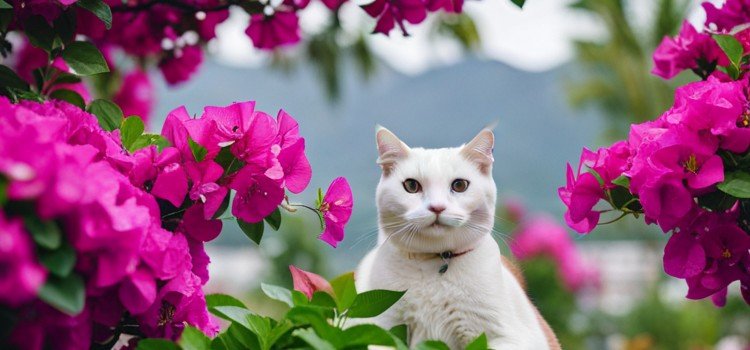
In this comprehensive guide, we’ll delve into the potential risks of Bougainvillea to feline friends, provide tips on keeping your cats safe, and answer frequently asked questions about this stunning plant.
Understanding Bougainvillea
What is Bougainvillea?
Bougainvillea is a colorful and tropical flowering plant known for its stunning and papery bracts. Native to South America, it thrives in warm climates and is famous for its ability to add vibrant shades to gardens, patios, and balconies. The plant produces clusters of small, tubular flowers surrounded by brilliantly colored bracts in hues like pink, purple, red, and orange. Due to its beauty and resilience, it’s a common choice for gardeners looking to create a stunning visual display.
Popular Varieties
Bougainvillea comes in various cultivars and varieties, including Bougainvillea glabra, Bougainvillea spectabilis, and Bougainvillea peruviana. These different species have unique characteristics, but when it comes to their potential toxicity to cats, they share common concerns. While Bougainvillea is a popular choice for its vibrant colors, it must note that all plant parts can be toxic to cats if ingested. The sap of the plant contains compounds that can cause gastrointestinal upset, such as vomiting and diarrhea, in feline companions.
Is Bougainvillea Toxic to Cats?
The Toxic Components
Bougainvillea contains chemical compounds called glycosides, specifically ones known as pinitol glycosides. These glycosides are responsible for the plant’s toxicity. When ingested by cats, these compounds can cause digestive distress and other health issues. While the exact mechanism of toxicity is not fully understood, cat owners need to be aware of the potential risks.
Symptoms of Bougainvillea toxicity in cats may include gastrointestinal upset, such as vomiting and diarrhea. In severe cases, it can result in a loss of body fluids and an imbalance of electrolytes. Therefore, cat owners must keep their feline companions away from this plant to prevent potential health issues.
Common Symptoms of Toxicity
If your cat ingests Bougainvillea, you may observe various symptoms of toxicity, which can include:
- Vomiting
- Diarrhea
- Drooling
- Gastrointestinal upset
- Pawing at the mouth
- Loss of appetite
The severity of these symptoms can vary depending on the quantity ingested and the individual cat’s sensitivity to the plant. It’s crucial to remember that different cats have different symptoms, and some may react more severely than others. In cases of suspected Bougainvillea toxicity, it is recommended to seek immediate veterinary care to ensure proper treatment and support for your cat’s well-being.
Severity of Toxicity
The severity of bougainvillea toxicity in cats typically depends on the amount ingested. In most cases, mild ingestion may lead to mild symptoms, such as brief episodes of vomiting or diarrhea. However, severe ingestion can result in more pronounced and persistent symptoms. In rare instances, severe toxicity may require veterinary intervention to provide supportive care.
Some severe symptoms of bougainvillea toxicity in cats include difficulty breathing, seizures, and loss of coordination. It is important to note that every cat may react differently to the ingestion of Bougainvillea, so it is crucial to monitor their condition closely and seek veterinary care if needed.
Keeping Your Cat Safe
Preventing Access to Bougainvillea
Prevention is the key to keeping your cat safe from bougainvillea toxicity. Here are some steps you can take:
- Ensure Bougainvillea is not accessible to your cat. This may involve keeping the plant outdoors in a fenced area, or if you have it indoors, place it in a location your cat can’t reach.
- Educate family members and houseguests about the potential danger of Bougainvillea to cats so everyone knows the need to keep the plant out of your cat’s reach.
- Regularly inspect your garden or home for fallen leaves, bracts, or flowers. Cats are naturally curious, and they may be tempted to investigate these colorful plant parts.
If you notice any fallen leaves, bracts, or flowers from the Bougainvillea, promptly remove them to prevent your cat from coming into contact with them. Additionally, consider providing alternative safe and stimulating toys or plants for your cat to redirect their curiosity and attention away from the Bougainvillea.
Alternative Safe Plants
If you’re concerned about the safety of your cat and still want to maintain a beautiful garden, consider choosing cat-friendly plants. Some safe options include catnip, cat grass, and a variety of herbs like mint and parsley. These plants can enrich your feline friend without posing a toxic threat. In addition to providing alternative safe plants, you can incorporate interactive toys into your cat’s environment. Toys that encourage hunting and play, such as puzzle feeders or wand toys, can help redirect their curiosity and energy away from potentially harmful plants like Bougainvillea. By offering various stimulating options, you can create a safe and engaging space for your cat to explore and enjoy.
Recognizing and Responding to Toxicity
In the unfortunate event that your cat ingests Bougainvillea or displays symptoms of toxicity, it’s crucial to act promptly. Here are the steps to take:
- Contact your veterinarian or an emergency animal clinic immediately. Share details about the plant ingested and the symptoms observed.
- Do not attempt to induce vomiting in your cat without professional guidance. It could worsen the situation.
- Provide your cat with access to fresh water to prevent dehydration, but avoid forcing them to drink.
- Follow your veterinarian’s advice for treatment, which may include supportive care, medication, or other interventions based on the severity of the toxicity.
It is important to remember that not all plants are toxic to cats, so it would be helpful to provide your veterinarian with the name or a picture of the plant ingested. Additionally, monitor your cat’s behavior and monitor for any changes in appetite or energy levels while waiting for professional guidance.
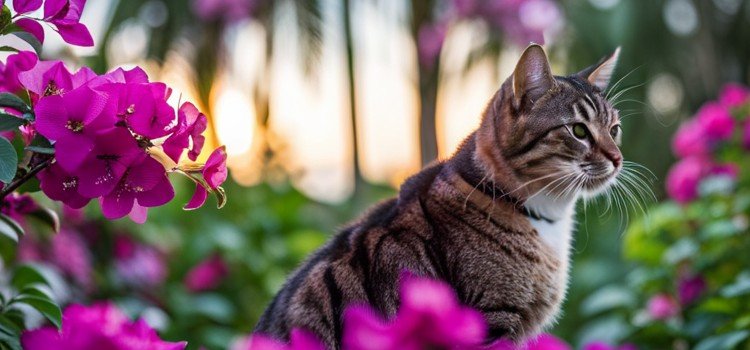
Conclusion
In conclusion, Bougainvillea is toxic to cats due to the presence of glycosides, primarily pinitol glycosides, in the plant. While not all cases of ingestion lead to severe toxicity, it’s crucial to prioritize your cat’s safety by preventing access to Bougainvillea and being aware of potential symptoms. Additionally, consider safe, cat-friendly alternatives to keep your garden and feline friend flourishing. By taking these precautions and remaining informed, you can ensure a safe and happy environment for your beloved cat.
Frequently Asked Questions (FAQs)
Yes, all varieties of Bougainvillea contain saponins and oxalates, making them potentially harmful to cats.
With prompt veterinary care, cats can recover from Bougainvillea poisoning. The severity of the symptoms and the cat’s overall health play a significant role in the recovery process.
Bougainvillea is recognized by its colorful bracts and its woody vines or shrubs. The bracts are papery and come in various shades, depending on the specific variety.
Consider planting cat-safe options such as cat grass, catnip, and marigolds. These plants can provide entertainment and sensory enrichment for your feline friend without posing a toxic threat.
While the thorns on Bougainvillea can cause injury to cats if they come into contact with the plant, the more significant concern is the plant’s toxicity when ingested.
Remember, when it comes to your beloved feline friend’s health, it’s always better to be safe than sorry. Preventing exposure to toxic plants like Bougainvillea is the key to ensuring your cat’s safety and well-being.
Amazon and the Amazon logo are trademarks of Amazon.com, Inc, or its affiliates.
